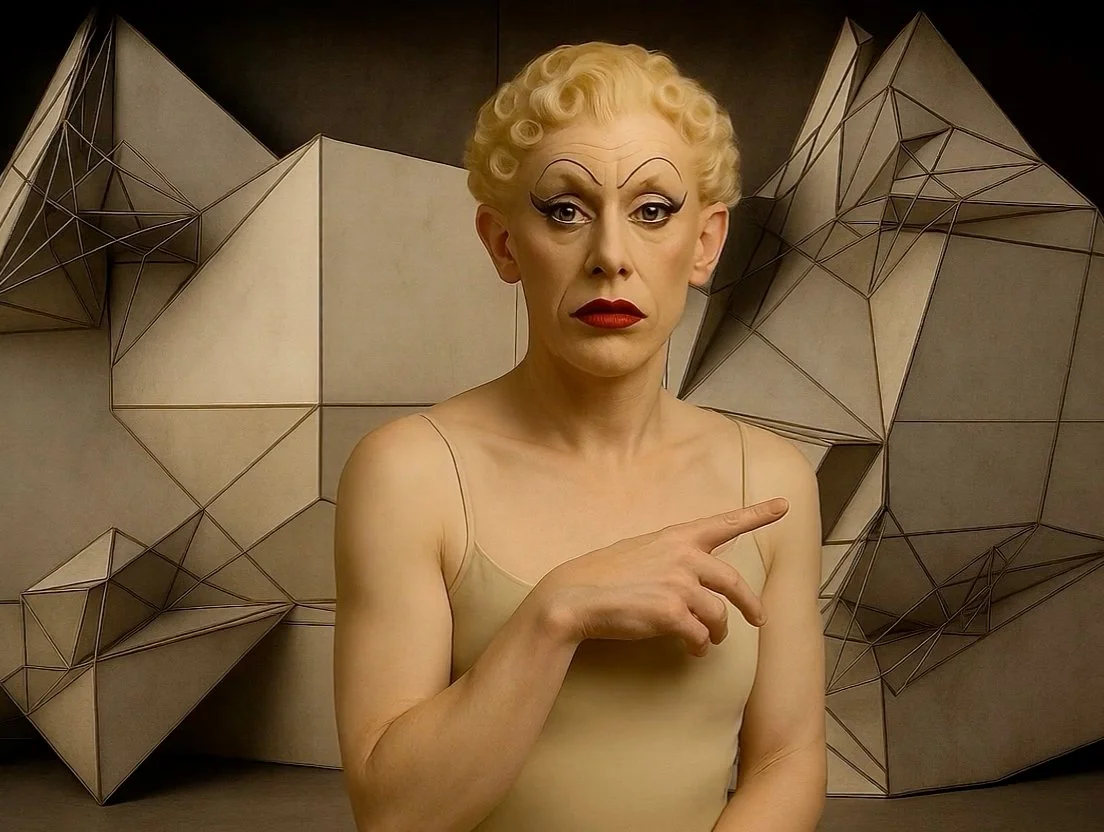On the Table
“The common aesthetic subconscious is the shared, often unspoken reservoir of tastes, symbols, and sensibilities that shape how a culture intuitively responds to forms and styles. It works much like the latent space in AI: both are invisible structures built from past data—cultural memory in one case, training datasets in the other—that guide and constrain what kinds of new expressions can emerge.”
By the fact that, via AI, we now have access to the common aesthetic subconscious—with the ability to let the CAS respond to our aesthetic input, i.e., our drawing and a verbal description of it—the casting of the figures and the following rehearsal becomes quite a revealing dialogue between the individual narrative and its unfolding across all the dimensions of our contemporary Commedia dell’Arte.
We are in the late year 1914 or early 1915. Little Anselino ran across the market, tripped, hit his head on a copper kettle, and fell unconscious. Those who rushed to his aid laid him on the sales table of the cloth merchant.
The question here is: which character and which setting would be appropriate for presenting, on stage, what happens around the table? Should he represent youth—or rather, the intersexual dynamic between the one lying on the table and the crowd around him?
-
Anselino was lifted onto the cloth
merchant’s counter,
laid out upon the lowermost fabric,
spread wide beneath him.He lay there quietly, as if asleep—
or as if pretending
to sleep. His eyeballs, behind closed
lids, began to flicker
the instant they set him down on
the table.The women and men who surrounded
him formed
an impenetrable frame of garments
and limbs.What had happened?
Had he stumbled? Struck his forehead—
or his temple—
against a copper kettle filled to the
brim with soft-boiled beans?He lay there quietly, as if asleep—
or as if pretending
to sleep. His eyeballs, behind closed
lids, began to flicker
the instant they set him down on
the table.Whether it was the forehead or the
temple became the subject
of the palaver.He lay there quietly, as if asleep—
or as if pretending
to sleep. His eyeballs, behind closed
lids, began to flicker
the instant they set him down on
the table.














